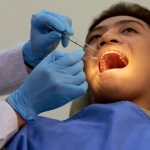The relationship between nutrition and cancer is a topic of growing interest within the medical community. While no single food or diet can prevent cancer, maintaining a healthy diet plays a significant role in reducing risk factors and supporting recovery. An emphasis on whole foods, rich in nutrients and antioxidants, can empower individuals to take control of their health and well-being.
Research indicates that certain dietary patterns, such as the Mediterranean diet, can lower the risk of developing various types of cancer. This diet is characterized by an abundance of fruits, vegetables, whole grains, healthy fats, and lean proteins. Incorporating these foods into daily meals can enhance overall health and fortify the body’s defenses against cancer.
For cancer patients, nutrition becomes even more critical during treatment. Many experience side effects such as nausea, loss of appetite, and fatigue, making it challenging to maintain adequate nutrition. Healthcare providers should prioritize nutritional counseling as part of the treatment plan to ensure patients receive the necessary support and guidance.
Moreover, community initiatives that promote healthy eating habits can significantly impact cancer prevention efforts. Cooking classes, nutrition workshops, and community gardens can educate individuals about the benefits of healthy eating while fostering a sense of community.
In summary, prioritizing nutrition is a vital component of cancer prevention and recovery. By adopting a balanced diet rich in whole foods and promoting healthy eating habits within our communities, we can take significant strides toward reducing cancer risk and supporting those currently battling the disease.





